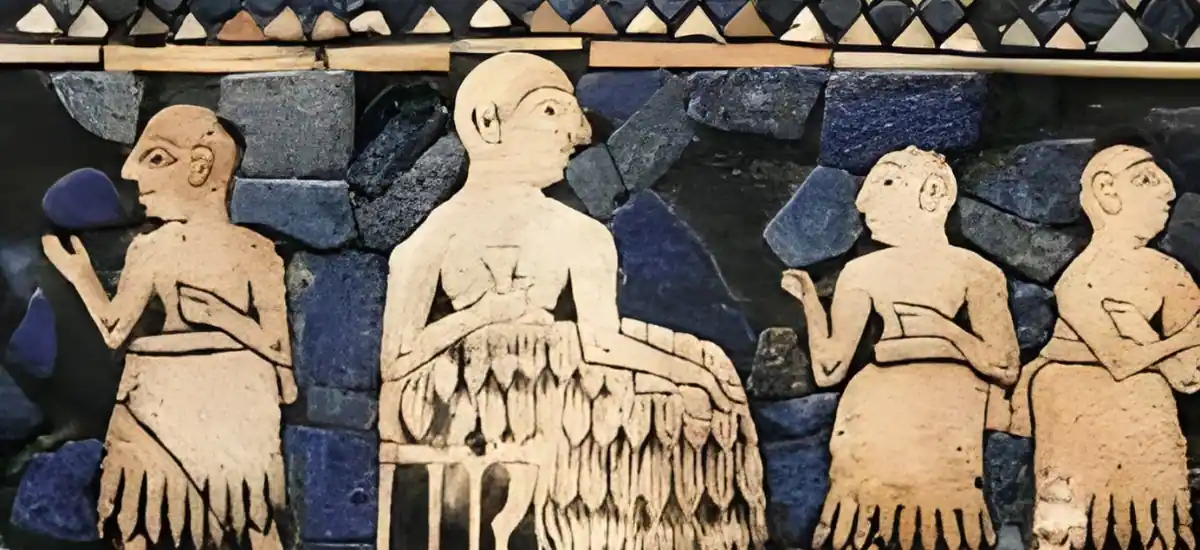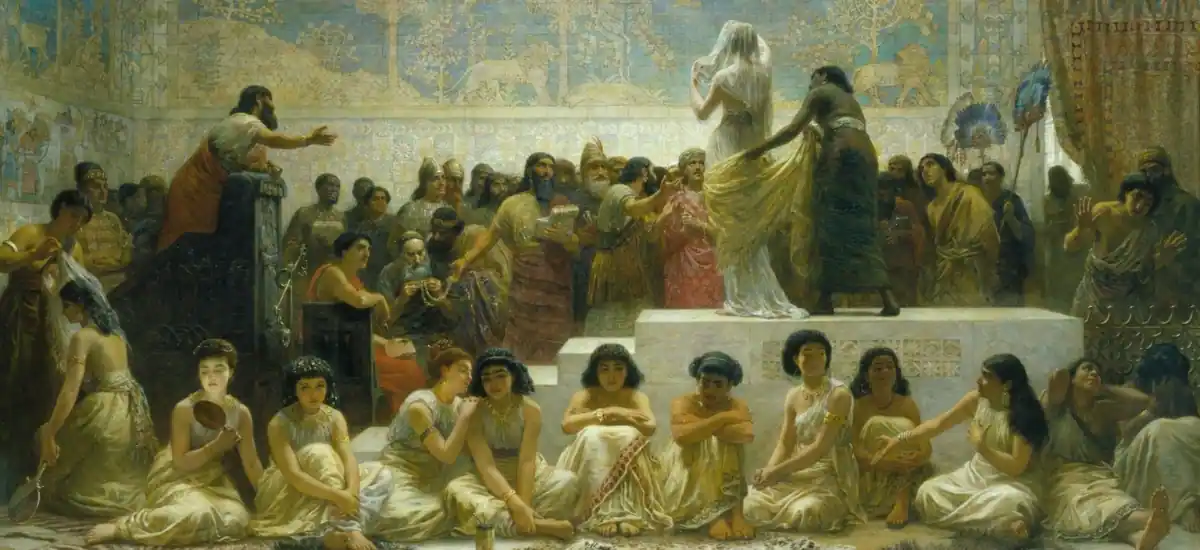Sumerian names hold a unique allure, rooted deeply in the annals of human history. Originating from one of the earliest civilizations known to man, these names are not just identifiers but are laden with meanings, each telling a story of heritage and ancient traditions.
As modern interest in these ancient monikers grows, many seek to discover the beautiful sounds and the rich symbolic meanings behind them. Whether for scholarly interest, personal identification, or creative expression, the appeal of Sumerian names continues to endure in contemporary times.
Let’s travel back in time to uncover the fascinating world of Sumerian names. This exploration will dive into their origins, delve into the meanings of popular and rare names, and guide those interested in adopting a Sumerian name for themselves.
The Origins Of Sumerian Names

The Sumerians, known for establishing one of the world’s first civilizations in Mesopotamia, left a lasting legacy through their innovative contributions to culture and language.
Their civilization, flourishing between 4500 and 1900 BC, was marked by advancements in writing, architecture, and governance.
The Sumerian language, a linguistic isolate, often incorporated elements that reflected their rich mythological and religious beliefs.
Common Sumerian Names
Sumerian Names For Male
Here are some Common Male Names:

| Anu | Utu | Dumuzi |
| Nergal | Ningirsu | Shulgi |
| Lugalbanda | Ur-Nammu | Ishme-Dagan |
| Sargon | Enlil | Eannatum |
| Mesannepada | Lugalzagesi | Amar-Sin |
- Anshar
- Dumuzid
- Enkimdu
- Lulal
- Ninazu
- Shara
- Ninlil
- Enmesarra
- Nanna-Suen
- Abu
Sumerian Names For Female
Here are some Common Female Names:

| Ninsun | Enheduanna | Ninkasi |
| Ereshkigal | Kubaba | Ninurta |
| Nidaba | Shala | Gula |
| Asherah | Geshtinanna | Namtar |
| Ninshubur | Siduri | Belili |
- Zababa
- Aruru
- Ninisina
- Nance
- Nindara
- Amasagnul
- Geshtinanna
- Ninmena
- Nisaba
- Ninlil
Sumerian Names For Unisex
Here are some Common Unisex Names:
| Marduk | Ashur | Nabu |
| Dagan | Ninazu | Enkidu |
| Dumuzi | Nanshe | Ninshubur |
| Ziusudra | Ki | Utnapishtim |
| Nungal | Damu | Tammuz |
- Adapa
- Endubsar
- Enkimdu
- Lugal
- Namma
- Ninisina
- Urshanabi
- Zababa
- Ninmah
- Ningal
Unique And Rare Sumerian Names

| Dumuzid | Ninurta | Nisaba |
| Ninmah | Ninshubur | Nidaba |
| Ninazu | Ninmena | Ninkasi |
| Urash | Ninsar | Nintinugga |
| Enbilulu | Ennugi | Ninkarrak |
- Ennui
- Enkimdu
- Sud
- Ninsutu
- Ashgi
- Ishkur
- Nisaba
- Ninurta
- Emesh
- Ninazu
Funny Sumerian Name Ideas
Here is a list of funny Sumerian name ideas

- Enki – God of water, knowledge, mischief, crafts, and creation (Keyword: Creator)
- Inanna – Goddess of love, beauty, sex, desire, fertility, war, justice, and political power (Keyword: Divine Beauty)
- Utu – God of the sun and justice (Keyword: Sunlight)
- Ereshkigal – Goddess of the underworld (Keyword: Underworld)
- Nammu – Goddess who represents the primeval sea (Keyword: Primordial Waters)
- Anu – God of the sky (Keyword: Sky King)
- Ninhursag – Goddess of fertility and the earth (Keyword: Earth Mother)
- Enlil – God of air, wind, and storms (Keyword: Storm Lord)
- Dumuzid – God associated with shepherds, fertility, and vegetation (Keyword: Shepherd)
- Gudea – Ruler of the state of Lagash (Keyword: Wise Ruler)
In today’s cultural landscape, Sumerian names are experiencing a resurgence through various channels:
- Literature and Media: Modern fantasy novels and films often utilize Sumerian names to add a layer of historical authenticity and intrigue.
- Heritage and Identity: Some choose these names to reconnect with or honor ancient heritages, appreciating their timeless nature and deep roots.
How To Choose A Sumerian Name

Choosing a Sumerian name involves thoughtful consideration of its historical and cultural context:
- Meaning and Sound: Select a name that resonates both in meaning and phonetically, ensuring it aligns with the individual’s identity or character’s traits.
- Name Generators and Resources: Utilize online tools and scholarly resources to explore and verify the meanings and authenticity of Sumerian names.
Frequently Asked Questions
Q1: Are Sumerian Names Still Used Today?
Ans: Yes, they are used both within communities valuing historical continuity and by individuals around the world in varied contexts.
Q2: How Were Sumerian Names Formed?
Ans: Typically through theophoric and descriptive methods, reflecting the societal and religious norms of the time.
Q3: Can I Adopt a Sumerian Name?
Ans: While adopting such a name is possible, it’s important to consider the cultural significance and ensure respectful use of the name.


Leave a Reply
You must be logged in to post a comment.